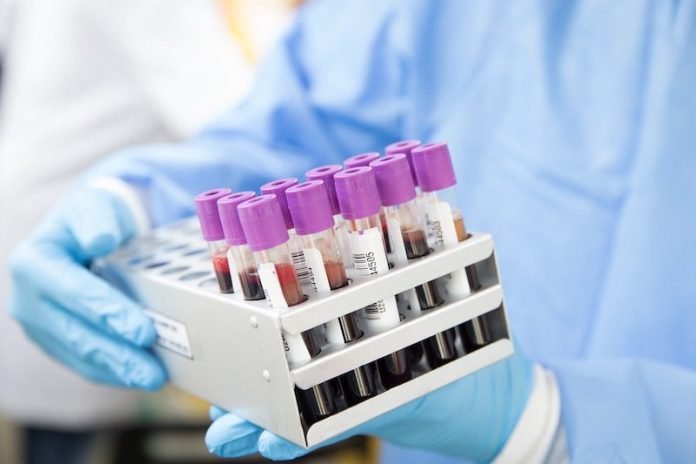
In a new study from the University of Oxford, researchers found that the risk of the rare blood clotting known as cerebral venous thrombosis (CVT) following COVID-19 infection is around 100 times greater than normal.
It is also several times higher than it is post-vaccination or following influenza.
In the study, the team counted the number of CVT cases diagnosed in the two weeks following diagnosis of COVID-19, or after the first dose of a vaccine.
They then compared these to calculated incidences of CVT following influenza and the background level in the general population.
They report that CVT is more common after COVID-19 than in any of the comparison groups, with 30% of these cases occurring in the under the 30s.
Compared to the current COVID-19 vaccines, this risk is between 8-10 times higher, and compared to the baseline, approximately 100 times higher.
The breakdown comparison for reported cases of CVT in COVID-19 patients in comparison to CVT cases in those who received a COVID-19 vaccine is:
In this study of over 500,000 COVID-19 patients, CVT occurred in 39 in a million patients.
In over 480,000 people receiving a COVID-19 mRNA vaccine (Pfizer or Moderna), CVT occurred in 4 in a million.
CVT has been reported to occur in about 5 in a million people after the first dose of the AZ-Oxford COVID-19 vaccine.
Compared to the mRNA vaccines, the risk of a CVT from COVID-19 is about 10 times greater.
Compared to the AZ-Oxford vaccine, the risk of a CVT from COVID-19 is about 8 times greater.
The team says an important factor that requires further research is whether COVID-19 and vaccines lead to CVT by the same or different mechanisms.
There may also be under-reporting or miscoding of CVT in medical records, and therefore uncertainty as to the precision of the results.
If you care about the COVID-19 vaccine, please read studies about what heart and stroke patients should know about COVID-19 vaccines and findings of what happens after you get the COVID-19 vaccine?
For more information about COVID-19 treatment and prevention, please see recent studies about this drug may help prevent serious illness in COVID-19 and results showing that this common health problem may strongly increase COVID-19 death risk.
One researcher of the study is Professor Paul Harrison.
Copyright © 2021 Knowridge Science Report. All rights reserved.



